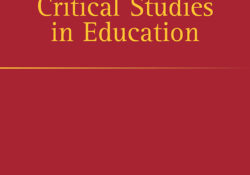tandfonline.com – Tablets in two Norwegian primary schools: is it time to consider young pupils’ framings of using tablets in education?
tandfonline.com har udgivet en rapport under søgningen “Teacher Education Mathematics”: ABSTRACT ABSTRACT This article investigates how 9–13 years old pupils interpret activities involving the use of tablets in two Norwegian primary schools. The theoretical context draws on Goffman’s frame analysis and on research on young people’s digital literacy practices as socially situated meaning-making practices. Data was gathered through group interviews. The findings show that pupils framed activities involving tablets as engaging, enabling and playful, but also as teacher-directed and as challenging to their existing competences. Pupils’ framings were largely defined by what they expected to be of importance to their teachers but sometimes these also interrupted the teacher’s facilitation. The outcomes allow us to discuss the implications for pupils in developing digital competences, as a result of participation in a… Continue Reading

